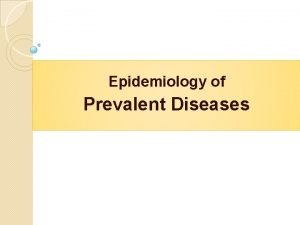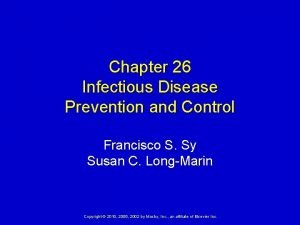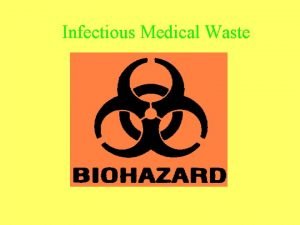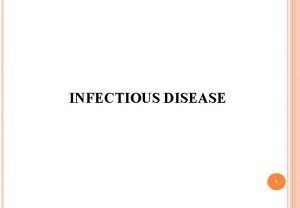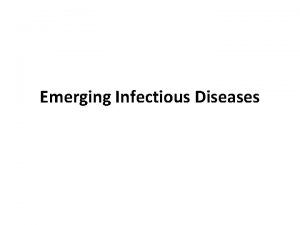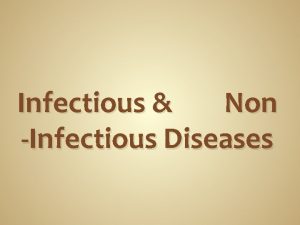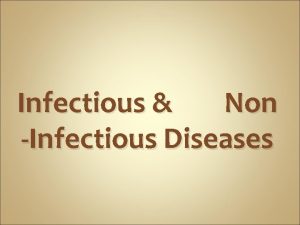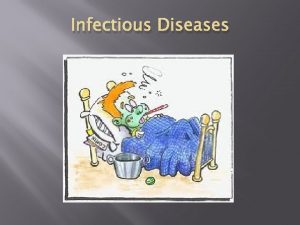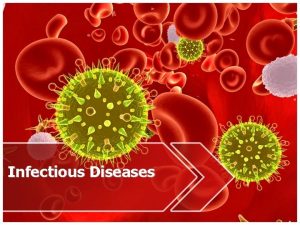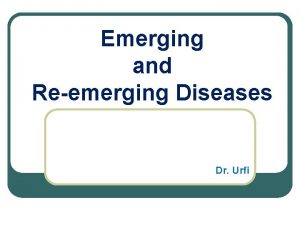Emerging Reemerging Infectious Diseases Analyze Emerging Reemerging Infectious








- Slides: 8

Emerging & Re-emerging Infectious Diseases Analyze Emerging & Re-emerging Infectious Diseases BT 06. 04

Emerging Infectious Diseases • Have not occurred in humans before • Have occurred previously but affected only small numbers • Or have occurred throughout human history, but only recently recognized as disease due to infectious agent • EX: H. Pylori- can cause stomach ulcer and cancer; requires vit. B 6 to establish and maintain infection. This finding along w/identification of the enzyme the microbe requires to utilize the vitamin, could lead to a new class of antibiotics.

• Globally, infectious diseases remain the leading cause of death, and are the 3 rd leading cause of death in the US.

Re-emerging Infectious Diseases • Once were major health problems globally or in a particular country, then declined dramatically, but are again becoming health problems for a significant proportion of the population • EX: Pertusis

Emerging ex: & contributing factors • Ebola- recognized in 1977 • Legionnaire- 1977, from cooling and plumbing systems • Lyme- 1982, conditions favoring tick vector and deer • AIDS- 1983, migration to cities, global travel, transfusions, organ transplants, IV drug use, sharing needles, multiple sex partners • Cholera- 1992, new strain of bacteria • SARS-2003

Re-emerging ex: & contributing fx • Tb- evolution (mutate) of causative bacteria, drug resistance, immuno compromised patient (HIV) • Malaria- drug resistance & favorable conditions for mosquito’s (Hurricaine) • Pertussis- refusal to vaccinate, decreased vaccine efficacy (? Relation to Autism), Immigrants • Rubeola- refusal or failure to vaccinate, or no follow up for subsequent vaccines • Yellow Fever-insecticide resistance, urbanization, civil strife (unrest)

Epidemic • An outbreak of a disease or illness that spreads rapidly among individuals in an area or population at the same time. EX: flu

Pandemic • An epidemic of infectious disease that has spread through human populations across a large region; for instance multiple continents, or even worldwide. • EX:
